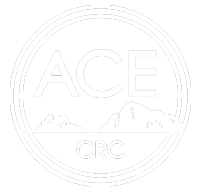National award for young ACE CRC scientist
Dr Andrew Bowie, a senior research scientist with the Antarctic Climate & Ecosystems Cooperative Research Centre (ACE CRC) in Hobart, has been named the 2012 Scopus Young Researcher of the Year in the Physical Sciences category.
Dr Bowie is a marine biogeochemist who studies how the ocean helps to control carbon dioxide concentrations in the atmosphere. “I look at the role of trace elements in moderating the biological productivity of the Southern Ocean and how this may change in the future," Dr Bowie said.
Marine trace elements have important implications for climate change because they help to fertilise the ocean, encouraging the plant growth that enables the ocean to capture carbon from the atmosphere. Oceans are extremely important in controlling carbon – about 30% of the CO2 released by human activities in the past 50 years has been absorbed by the oceans.
Dr Bowie said: “I am extremely proud and honoured to receive this award, which provides recognition of the importance of the research we are conducting in Hobart into marine biogeochemical processes in the Southern Ocean, processes that control our climate and the functioning of Antarctic marine ecosystems.”
The national award is one of a list of accolades for Dr Bowie, who also received the Royal Society-Australian Academy of Science “Exceptional Young Researcher” Award in 2010 and a University of Tasmania “Rising Star Award” in 2011.
Dr Bowie leads a research team in the ACE CRC’s ‘Carbon’ program. In May-June 2011 he led 11 scientists from seven nations on a research voyage through the Pacific Ocean on the CSIRO’s RV Southern Surveyor. The voyage was part of a 10-year international program (called GEOTRACES), which is studying the sensitivity of ocean trace elements and isotopes to changing environmental conditions.
The Scopus Young Researcher Awards are organised by the scientific publishing company Elsevier to recognise outstanding young scientists and researchers in Australasia, with winners and finalists selected by an independent panel of three experts per category. Applicants are evaluated according to citations in the Scopus database, the external impact of their research and the contribution of their work to their field internationally and to the advancement of science.
Associate Professor Michael Breadmore and Associate Professor Robert Shellie, both from the UTAS School of Chemistry, were also finalists in the Physical Sciences category.






















